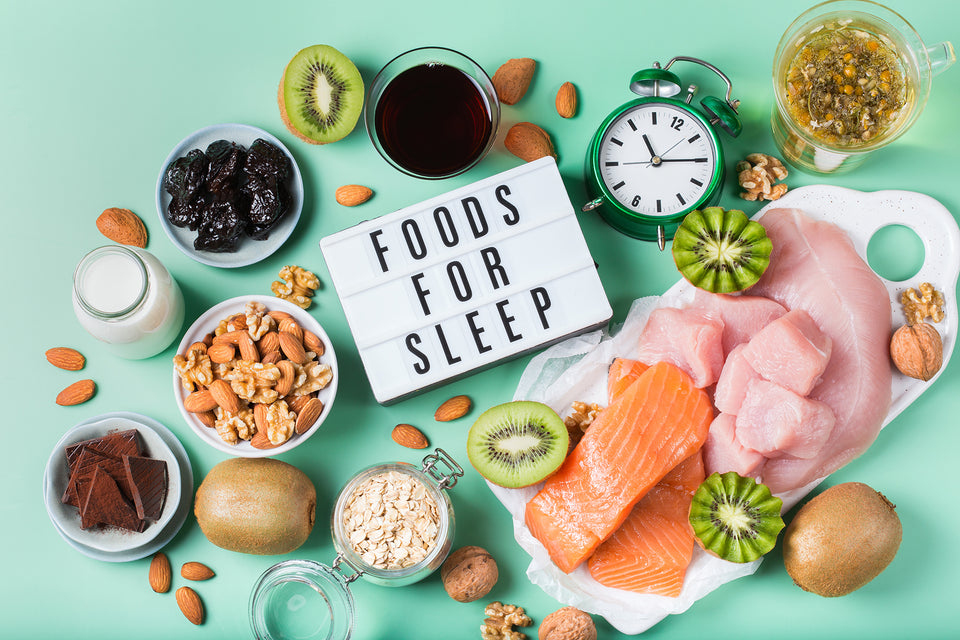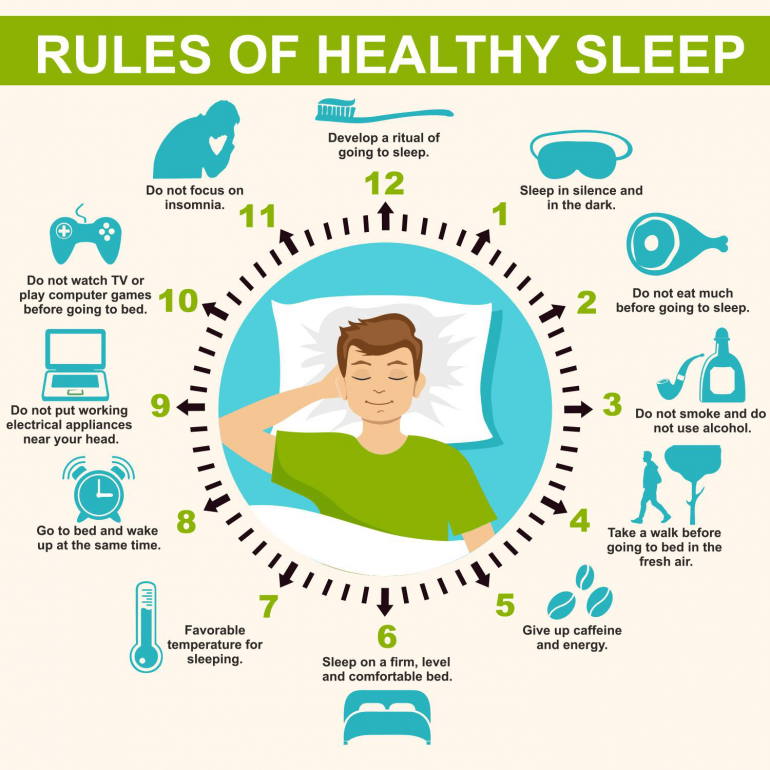Table of Contents
- Introduction
- Natural Ways to Sleep Better at Night
- Diet for Better Sleep
- Remedies for Sleep Anxiety
- 10 Healthy Sleep Habits
- 26 Home Remedies for Insomnia
- 23 Frequently Asked Questions (FAQs) About Sleep
- Conclusion
Introduction
Struggling with sleep is a common issue that can impact overall health and well-being. Whether you’re having trouble falling asleep, staying asleep, or simply want to improve the quality of your rest, there are natural methods to enhance your sleep. This article provides comprehensive guidance on how to sleep better naturally, dietary tips for better sleep, remedies for sleep anxiety, and practical sleep habits.
Natural Ways to Sleep Better at Night

Create a Consistent Sleep Schedule
Going to bed and waking up at the same time every day helps regulate your body’s internal clock. Consistency in your sleep routine reinforces your natural circadian rhythm, making it easier to fall asleep and wake up naturally.
Establish a Relaxing Bedtime Routine
Engage in calming activities before bed, such as reading, taking a warm bath, or practicing gentle yoga. A bedtime routine signals your body that it’s time to wind down, reducing stress and promoting relaxation.
Optimize Your Sleep Environment
Your sleep environment plays a crucial role in the quality of your sleep. Ensure your bedroom is cool, dark, and quiet. Investing in a comfortable mattress and pillows can also make a significant difference.
Mind Your Diet and Exercise
A balanced diet and regular exercise can improve your sleep quality. Avoid heavy meals, caffeine, and alcohol close to bedtime, and incorporate physical activity into your daily routine, but not too close to bedtime.
Practice Mindfulness and Relaxation Techniques
Techniques such as deep breathing, progressive muscle relaxation, and meditation can help calm the mind and prepare the body for sleep. These practices can be particularly helpful if you struggle with anxiety or stress-related sleep issues.
Diet for Better Sleep

Foods that Promote Sleep
Certain foods contain nutrients that can enhance sleep quality. These include:
- Tryptophan-rich foods: Turkey, nuts, seeds, bananas, and eggs.
- Magnesium-rich foods: Leafy greens, nuts, seeds, and whole grains.
- Melatonin-rich foods: Tart cherries, grapes, and tomatoes.
Foods to Avoid
To improve sleep, avoid consuming the following close to bedtime:
- Caffeine: Found in coffee, tea, chocolate, and some medications.
- Alcohol: While it may help you fall asleep, it can disrupt sleep later in the night.
- Heavy or spicy meals: These can cause discomfort and indigestion.
Remedies for Sleep Anxiety
Aromatherapy and Essential Oils
Aromatherapy can be an effective way to ease anxiety and promote sleep. Essential oils like lavender, chamomile, and sandalwood are known for their calming properties. You can use them in a diffuser or apply diluted oils directly to your skin.
Herbal Teas and Natural Supplements
Herbal teas like chamomile, valerian root, and passionflower are popular natural remedies for anxiety and sleep. Additionally, supplements like melatonin and magnesium can support sleep, but it’s advisable to consult with a healthcare provider before starting any new supplement.
Vitamins for Sleep and Anxiety
Certain vitamins and minerals can help manage sleep and anxiety:
- Vitamin D: Low levels are linked to sleep disturbances.
- B Vitamins: Help regulate the body’s tryptophan, which is crucial for sleep.
- Magnesium: Known for its calming effects.
10 Healthy Sleep Habits

- Stick to a consistent sleep schedule.
- Avoid large meals, caffeine, and alcohol before bed.
- Create a comfortable sleep environment.
- Engage in physical activity during the day.
- Limit naps to 20-30 minutes.
- Practice relaxation techniques before bed.
- Avoid screens for at least an hour before bed.
- Get exposure to natural sunlight during the day.
- Keep your bedroom dark and cool.
- Use your bed only for sleep and relaxation.
26 Home Remedies for Insomnia
- Warm milk or herbal tea before bed.
- Lavender essential oil for relaxation.
- Melatonin supplements.
- Epsom salt bath.
- Breathing exercises.
- Progressive muscle relaxation.
- Avoiding blue light exposure.
- Mindfulness meditation.
- Reading a book.
- Keeping a sleep diary.
- Aromatherapy with chamomile.
- Limit screen time before bed.
- Eat a light snack.
- Adjust your sleep environment.
- Establish a sleep routine.
- Listen to calming music.
- Practice yoga or gentle stretching.
- Visualize calming scenes.
- Cognitive Behavioral Therapy for Insomnia (CBT-I).
- Massage therapy.
- Acupressure.
- Avoid napping late in the day.
- Maintain a regular wake-up time.
- Invest in a comfortable mattress and pillows.
- Reduce noise in the bedroom.
- Use blackout curtains to keep the room dark.
23 Frequently Asked Questions (FAQs) About Sleep
1. What is the ideal amount of sleep for an adult?
Most adults need 7-9 hours of sleep per night. The exact amount can vary depending on individual needs, lifestyle, and overall health. Quality is just as important as quantity, so focus on getting restful sleep.
2. How can I reset my sleep schedule?
To reset your sleep schedule, gradually adjust your bedtime by 15-30 minutes earlier or later each night. Consistency is key—stick to the same wake-up time, even on weekends. Exposure to natural light during the day and avoiding screens before bed can also help.
3. What is sleep hygiene?
Sleep hygiene refers to healthy sleep habits that can improve your ability to fall asleep and stay asleep. This includes maintaining a consistent sleep schedule, creating a comfortable sleep environment, and avoiding stimulants like caffeine before bed.
4. How do I know if I have a sleep disorder?
Symptoms of a sleep disorder can include difficulty falling asleep, staying asleep, excessive daytime sleepiness, snoring, and frequent waking during the night. If you experience these symptoms regularly, it’s advisable to consult a healthcare provider.
5. What are the benefits of a consistent sleep schedule?
A consistent sleep schedule helps regulate your body’s internal clock, improving the quality of your sleep. It can also enhance mood, cognitive function, and overall health by ensuring your body gets the rest it needs.
6. Can diet affect sleep quality?
Yes, diet can significantly affect sleep quality. Foods rich in tryptophan, magnesium, and melatonin can promote better sleep, while caffeine, alcohol, and heavy or spicy meals close to bedtime can disrupt sleep.
7. How does exercise influence sleep?
Regular exercise can improve sleep quality by reducing stress, anxiety, and depressive symptoms. However, intense exercise close to bedtime may have the opposite effect, so it’s best to finish workouts at least a few hours before bed.
8. What are the best natural remedies for insomnia?
Natural remedies for insomnia include herbal teas (like chamomile and valerian root), melatonin supplements, aromatherapy with lavender, and mindfulness practices such as meditation and deep breathing exercises.
9. How does stress impact sleep?
Stress can activate your body’s fight-or-flight response, making it difficult to relax and fall asleep. Chronic stress can lead to insomnia and other sleep disorders. Managing stress through relaxation techniques and a calming bedtime routine can help improve sleep.
10. Is it normal to wake up in the middle of the night?
Waking up occasionally during the night is normal, but frequent awakenings may indicate an underlying issue such as stress, anxiety, or a sleep disorder like sleep apnea. Identifying and addressing the cause is crucial for improving sleep quality.
11. What is the role of melatonin in sleep?
Melatonin is a hormone produced by the pineal gland that regulates your sleep-wake cycle. It is often referred to as the “sleep hormone” because it helps signal to your body that it’s time to sleep. Melatonin supplements can be useful for short-term sleep issues.
12. Can supplements help improve sleep?
Yes, certain supplements like melatonin, magnesium, and valerian root can help improve sleep. However, it’s essential to consult with a healthcare provider before starting any supplement to ensure it’s safe and appropriate for you.
13. How does technology affect sleep?
Technology, particularly the blue light emitted by screens, can interfere with your body’s production of melatonin, making it harder to fall asleep. It’s advisable to avoid screens at least an hour before bed to promote better sleep.
14. What are the symptoms of sleep apnea?
Sleep apnea symptoms include loud snoring, gasping for air during sleep, excessive daytime sleepiness, morning headaches, and difficulty concentrating. If you suspect sleep apnea, consult a healthcare provider for evaluation and treatment.
15. How can I improve my sleep environment?
To improve your sleep environment, ensure your bedroom is cool, dark, and quiet. Invest in a comfortable mattress and pillows, use blackout curtains, and consider a white noise machine if you’re sensitive to noise.
16. What are the risks of sleeping pills?
Sleeping pills can be effective for short-term use but come with risks such as dependency, tolerance, and potential side effects like dizziness, daytime drowsiness, and memory problems. It’s essential to use them under the guidance of a healthcare provider.
17. Can napping affect nighttime sleep?
Napping, especially late in the afternoon, can interfere with your ability to fall asleep at night. If you need to nap, try to keep it short (20-30 minutes) and early in the day to avoid disrupting your nighttime sleep.
18. How does aging affect sleep?
As people age, they often experience changes in sleep patterns, including taking longer to fall asleep, waking up more frequently during the night, and waking up earlier. These changes can be managed with good sleep hygiene and lifestyle adjustments.
19. What is REM sleep and why is it important?
REM (Rapid Eye Movement) sleep is a stage of sleep characterized by rapid eye movements, vivid dreams, and increased brain activity. It plays a critical role in memory consolidation, learning, and emotional regulation.
20. How can I manage sleep anxiety?
Managing sleep anxiety involves creating a relaxing bedtime routine, practicing mindfulness, using calming techniques like deep breathing, and avoiding stimulating activities before bed. In severe cases, Cognitive Behavioral Therapy for Insomnia (CBT-I) may be beneficial.
21. What are the effects of alcohol on sleep?
While alcohol may help you fall asleep faster, it can disrupt your sleep cycle, particularly the REM stage, leading to poorer sleep quality. It can also cause you to wake up during the night as your body processes the alcohol.
22. How does caffeine impact sleep?
Caffeine is a stimulant that can interfere with your ability to fall asleep and stay asleep. It’s best to avoid caffeine for at least six hours before bedtime to prevent it from disrupting your sleep.
23. What is the best position to sleep in?
The best sleep position varies from person to person, but sleeping on your back or side is generally recommended for spinal alignment and to reduce the risk of developing sleep apnea. Sleeping on your stomach is less ideal as it can strain your neck and spine.
Conclusion
Achieving better sleep naturally involves a combination of healthy habits, dietary adjustments, and relaxation techniques. Whether you’re dealing with occasional sleeplessness or chronic insomnia, implementing these strategies can help improve your sleep quality and overall well-being. Remember, it’s essential to consult with a healthcare provider if sleep issues persist.
This article provides a comprehensive guide to improving sleep through natural methods, diet, and home remedies. Implementing these strategies can help you achieve better rest and reduce anxiety related to sleep.



